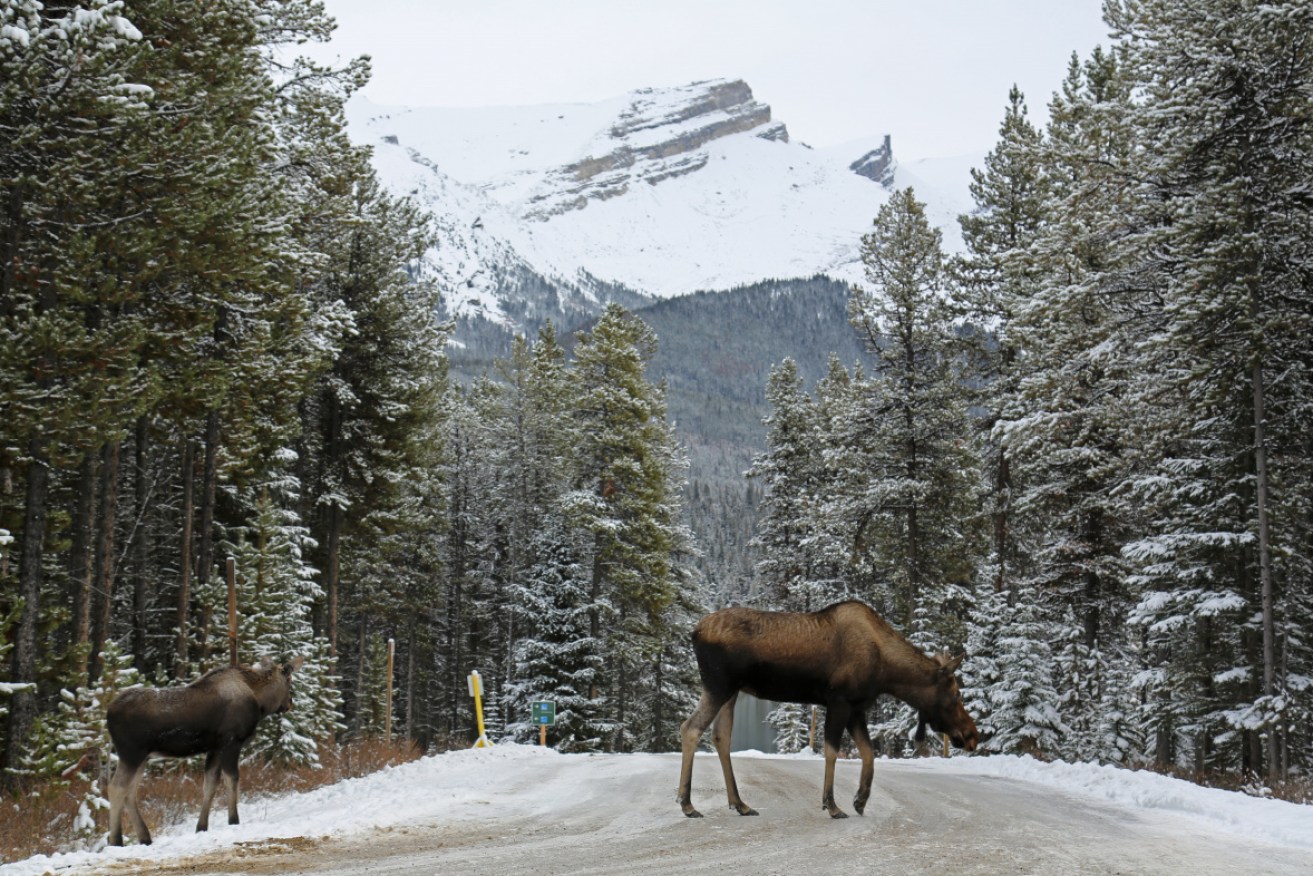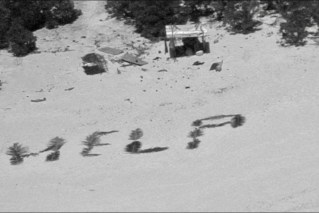Canadian park staff get salty with slick licking moose


Moose cross the road in in the snow in Canada's Jasper National Park. Photo: Getty
This week’s most urgent message to Canadian motorists? Don’t let the moose lick your car.
No, it’s true – really.
It might sound like the stuff of urban legend, but moose getting up close with passing cars is actually a bit of a problem in Canada.
And it’s all down to salt. Road salt, to be precise – which moose apparently love.
“I hate to say it, but this road salt is kind of like crack [to moose],” Jasper Tour Company owner Joe Urie told the CBC this week.
Tweet from @_CLCampbell
Road salt is applied to roads to make them less dangerous throughout Canada’s notoriously chilly winter.
Moose can it off the tarmac but they’ve developed a preference for getting it off the body panels of cars. That puts them on the road and close to drivers – a problem that is getting worse as Canada’s moose population grows, thanks to a declining wolf population, and as moose become more and more comfortable around humans.
Jasper newspaper Fitzhugh said moose were common in the area at this time of year. They are often seen standing or kneeling down in the middle of the driving lanes eating road salt. Sometimes they take small siestas in the middle of the road, while they can also be in the ditch or forest next to the road.
Jasper National Park spokesman Steve Young said people were getting “far too close” to the animals.
“[This] started as an occasional issue a few years ago and now is too common,” he told Fitzhugh.
This year the national park is cracking down. People are now required to remain in their cars if they meet wildlife on the park’s roads.
They have to stay at least 30 metres away from any elk, moose, caribou, sheep, or goats they meet. And, wisely, at least 100 metres from any bears, cougars or wolves.
It is also against the law to feed, entice or disturb wildlife in Canadian national parks. Those who break the law face fines of up to C$25,000 (A$26,230).








